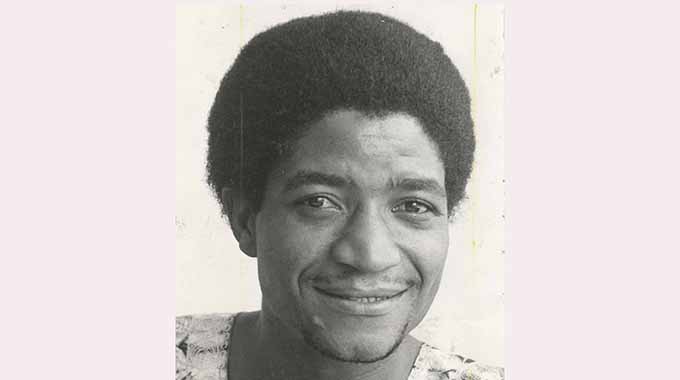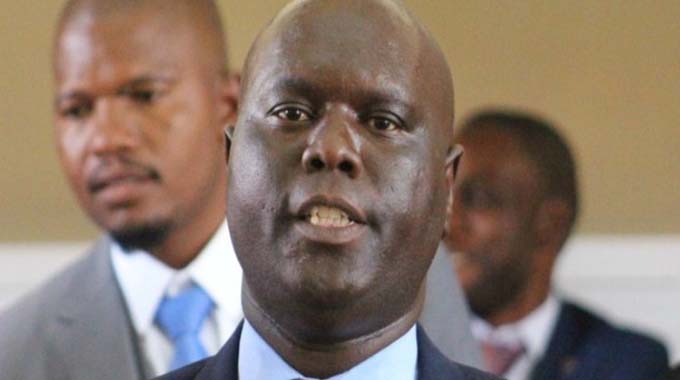All work, no play makes Dave a dull boy

David Mungoshi Shelling the Nuts
While serenity and introspection are sublime, there is no denying that laughter, camaraderie and bonhomie make the world a lovely place to be.
We need to smile a bit more and we need to laugh even more.
You miss something of great importance when you choose to be a loner and pretend to be someone marooned on a desert island, your compass lost and the sky angry with dry clouds that make you see things that are not there.
The word “mirage” is an enigmatic one; I have loved it since my boyhood days when we fed our imagination at the bioscope.
In movies, people somehow always get lost in the desert despite the fact that the desert is full of wandering tribes that live their lives much like the storybook characters in glossy children’s books.
You see a man who obviously has been in the sun too long and is beginning to hallucinate.
His eyes are wild and his lips are cracked.
He is carrying a small bottle of water which yields nothing when he opens his dry mouth. Only a whiff of water imagined, touches his parched lips.
True to the script, the thirsty man throws the empty bottle away and curses the gods of dryness who see it fit to torture him so. Then a miracle happens as it always does in such situations.
The wretched man begins to hear the mellifluous sound of a desert flute played by a tribesman with restful eyes and an incongruous zest for life on the plains somewhere far away; both men are yearning to say goodbye to all this, but the desert is a jealous mistress.
She will not let anyone go. Before too long, the hallucinating man starts running, running and falling, and running again.
He even crawls along the ground on his belly.
Then the miracle happens. The music in his ears is from the nearby oasis that he can see with his dulled eyes. There is water at the oasis and there are palm trees as well.
Suddenly, the man is saved! Somehow he finds the strength to make a run for the oasis.
Getting there, he leaps into the water and scoops some up with his cupped hands. But, alas! There is no water.
Only the sun and the sand and a mocking bird somewhere deep in his mind.
The Marty Robins song “Cool Water” always did the trick for me.
It gave a graphic illustration of thirst and yearning and whenever Hollywood gave us the desert and the thirst, there was always a voice in the background singing:
All day I’ve faced a barren waste
Without the taste of water, cool water
Old Dan and I with throats burned dry
And souls that cry for water
Cool, clear, water
The nights are cool and I’m a fool
Each star’s a pool of water
Cool water
And with the dawn I’ll wake and yawn
And carry on to water
Cool, clear, water
When you watch such movies, this is where you need what linguists refer to as subjective simultaneity.
According to this piece of linguistic wisdom, you can pretend that things happen at the pace at which you see them.
In a live football commentary for example, even though they know it, nobody cares.
When a radio commentator says Denver drives the ball into the roof of the net, we all know that even as the commentator says that, the ball is long gone from Denver’s boot.
We believe what the commentator tells us because he is the expert. As they say, among the blind, the one-eyed man is king!
There is much to laugh about at football matches, especially with regard to some of the more outlandish antics of some of the more fanatical football fans.
Once upon a time, there were no stadiums. It was always just a football pitch around which the fans stood to watch the game.
If you were unlucky to be standing next to a distracted fan, you got your shins kicked and your toes stamped on.
And the spittle hit your face as the man shouted encouragement to his team and obscenities against the rival team for executing good moves.
In the days before the radio commentaries by the likes of Jonathan Mutsinze, there was usually a man at Barbourfields doing a live commentary through a loud hailer.
His favourite utterances were reserved for John Kimba, the ebullient keeper for a team called North Rhodesia. When defending a corner, Kimba would punch the ball clear and also punch a man. This antic was later taken up by Stewart Gilbert in goals for Arcadia in Harare.
John Kimba was popularly known as John Walker. The commentator would go:
John Walker, born 1857
Sleeping under the city drains
Seven days no Kos!
Kos is Afrikaans for food. Most kids believed the hype about John Walker, the cat. No one ever shot a penalty past him.
There were some who believed that most strikers dared not score against John Walker unless they fancied being on the losing side of a street fight.
John Walker never lost a fight. There was dynamite in his fists and his head-butts left rivals disoriented and confused. Only one man, Manuere the Portuguese, as he was known by his legion of fans, dared, on occasion, threaten to fight John Walker. Manuere played for a team that sometimes dared to win against John Walker and his mates.
In those days, Mozambique was known as Portuguese East Africa.
Manuere was reputed to have come from there; and so, for that reason, he was known as Manuere, the Portuguese. He was a tall sturdy fellow who sometimes challenged John walker to a fight, but took care never to make the fight happen.
However, Manuere was a really good Number 5 and always made it into the Red Army Eleven (the Bulawayo pick), and even into the Rhodesia Pick as the national team was called.
While street urchins, such as I was at the time, longed to see a John Walker and Manuere fight, it never happened.
Disappointed that the most wished-for fight in town kept evading us, we sought our fun elsewhere.
With one eye on the match and the other elsewhere, we sat in small groups of naughty boys, enjoying the fun in some of the names that had gained currency in and around Bulawayo. Try these for size:
Wolonika – Old Nick Mine
Ngerengere – Glengarry
Ngilivotshi – Eagle Vulture
Egadadi – Goddard’s farm
Gududu – Goodwood Farm
Unkamungana – Cunningham
In later years, I was to discover more funny names including the following two pairs of equally hilarious names:
Vherivhenya – Fair Adventure
Hakireni – Hartley (Chegutu today)
People in Zimbabwe do seem to have a knack for coming up with unique names like the popular Loveness (Whatever that is) and Takesure.
Some social media buffs have improvised names around Zimbabwe’s current cholera outbreak.
Take a look at these: Antibiotic Phiri, Bacteria Ndlovu, Borehole Sithole, Cholera Sigauke, Glen View Moyo, Polyclinic Dube, Hygiene Mlilo, Contaminated Makanje and so on.
Former Rhodesian whites of European origin, particularly the urban dwellers, displayed quite a few idiosyncrasies. While some of them like Ian Douglas Smith spoke perfect Shona, others mutilated it.
Thus if you were thought to be loitering, a white policeman would ask, “Inodei? (What does it want?) Similar other utterances included orders like, “Ngaiyende! (It must go).
To an extent, these utterances were grammatically correct, their absurdity notwithstanding. Whites of the time did not think Africans were human, hence the use of the derogatory pronoun “It”.
Recently, I went to a 24-hour clinic in Gweru where I got the emergency attention I was in need of.
And while I was there, something that I had never thought possible, a grown-up woman, probably a mother from the looks of things, screamed most frightfully from one of the treatment rooms and made the patients waiting at reception, myself included, lean forward and crane their necks in the direction of that piercing scream.
When she emerged from the treatment room, she was smiling sheepishly.
It turned out that she was mortified at the thought of having to have an injection!
Contrary to the screaming young woman at the24-hour clinic, a visit to another clinic on another day yielded a gem of an episode. A boy of about three or so years of age swore that he was not going home unless the nursed gave him an injection.
Last, but not least, a dirty young man with thick-matted hair and a lost and glazed look on his face came to a church service that I happened to have attended.
He came to me and begged that I gave him 20 cents so he could buy the drugs that he had to take regularly.
Then the gem: If I do not get the drugs I’m supposed to be using, I become violent!
The height of subtlety!










Comments